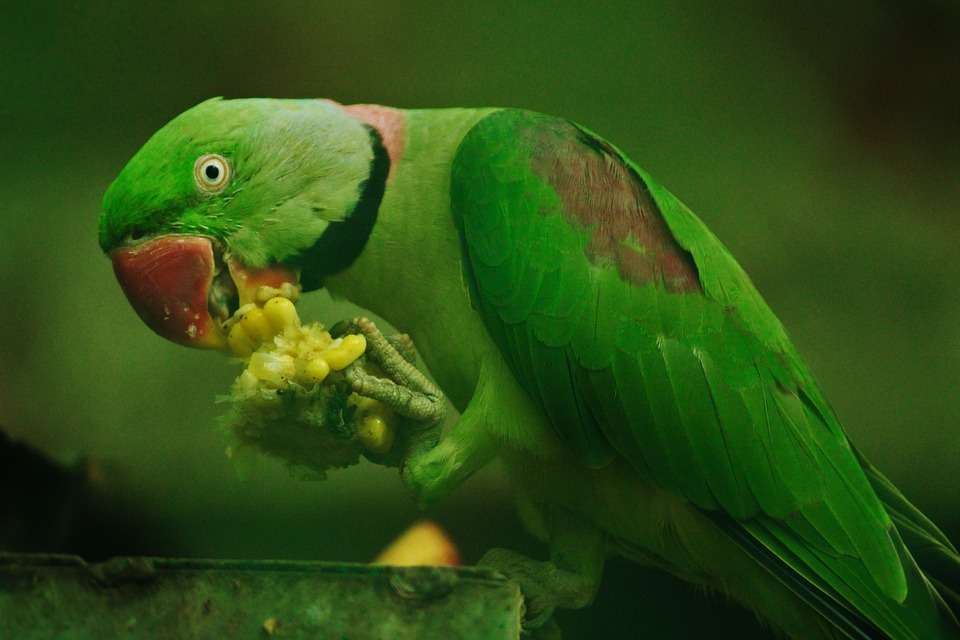Parrots are intelligent birds who make excellent pets if you’re willing to properly care for them. However, like any other animal, they can die from ingesting toxic materials, extreme emotional distress or an undiagnosed illness.
There are hundreds of different species of parrots with a variety of colors, sizes, and personalities. You can choose how much socialization you prefer or whether you want a bird that is reserved and more introverted. Parrots live up to 30 years or more if taken care of properly.

Why Do Parrots Die Suddenly?
Ingestion of toxic materials
If you have less than a healthy parrot, one possible reason she may have passed away is that she ate something toxic the day before. Make sure to learn about common toxicities in the home so your parrot is well fed and safe from dangers.
Avocados are toxic to birds as well as many common houseplants, such as lilies. Make sure you check with your vet to ensure that your bird is safe for your parrot to be outside at all times.
Some common household items that are harmful to your bird are scented candles, Teflon, plug-in air fresheners & polyurethane found on some hard floor & furniture pieces. They should not be used when cleaning with chemical cleaning products and should also not be burned near birds to avoid poisoning them.
Make sure that all medications and bird attractants are in safe, inaccessible places. Monitor your parrot to make sure she doesn’t chew on unsafe items like electrical cords that may have lead paint.

Signs of illness
Parrots, like all birds, are susceptible to all sorts of conditions. Some of the more common ones include Proventricular Dilatation Disease (PDD), Pulmonary Sarcocystosis, and Parrot Fever. If there is any doubt about your parrot’s health you should always seek veterinary care.
While the signs of your bird being sick might not be apparent, it is important to monitor your birds health and take appropriate action if anything seems amiss.
The one thing you must always keep a close eye on is any changes in appetite, eating, behavior and weight. Some other things to keep an eye out for are changes in energy levels, vocal patterns and weakened strength.
Eye or nose discharge, beak discoloration, and fluffed feathers are also signs that your bird is ill.
Parrot night fright
Night fright is a fairly common condition for birds and can cause them to make a fatal mistakes.
Parrots may be injured or even die from a scary experience. These experiences might include seeing headlights from a car, hearing loud noises like dogs barking or honking the horn, catching mice or cockroaches in the cage, etc.
These unfortunate birds may suffer from night frights that cause them to fall from their perch, fly into the side of the cage, or get a wing caught trapping blood feathers.
If your bird hits the cage at an incorrect angle, it may cause death. It could also lead to bleeding out and death in smaller parrot types. This is especially true if no treatment has been given to the wound that caused the injury.
Since the exact cause of night fright is not really known, it can be difficult to prevent it completely. Some steps that may help include placing your bird’s cage in a quiet darkroom, using heavy curtains to block light from passing cars, and playing white noise for noise therapy.
Determining the cause of death
Birds consume a variety of food, and they can also die from respiratory blockage when they eat too much. Female parrots are at risk of getting egg binding, which is when the eggs get stuck.
Your bird’s death can be difficult to figure out. If you want to get a definitive cause, ask your veterinarian for a necropsy.
Many veterinarians also offer different levels of cremations or cemetery services to make sure that your best buddy is placed in a respectful environment. You should check local ordinances before deciding what you do with your bird’s body.

Leave a Reply